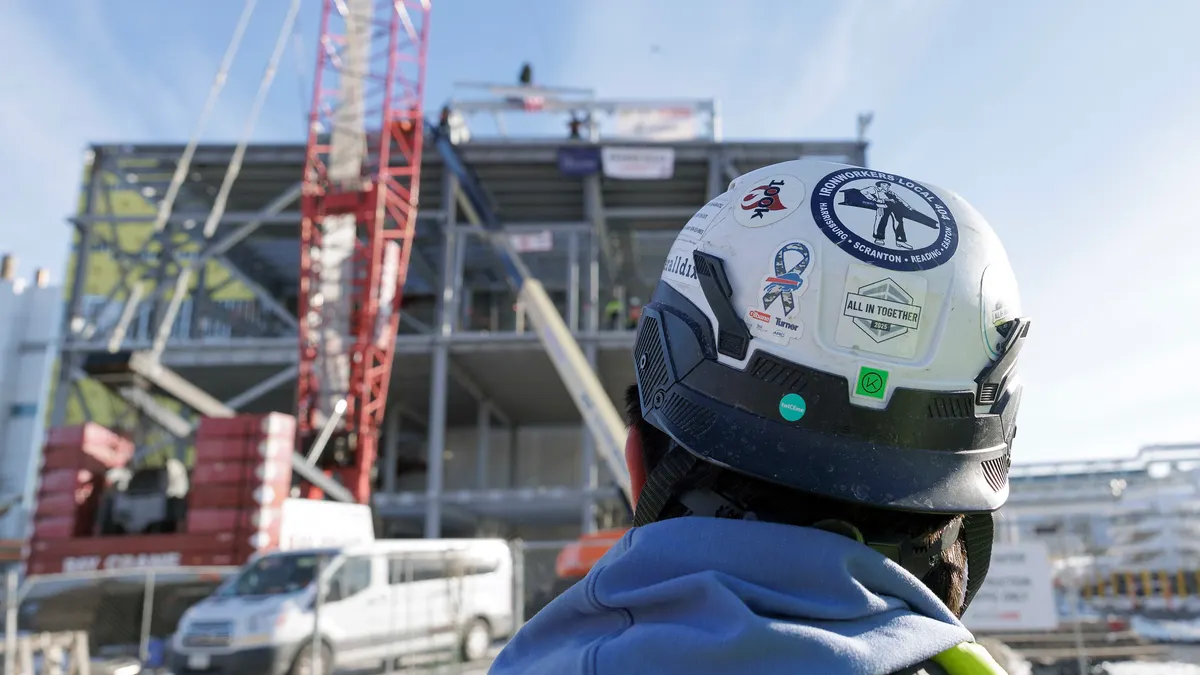As the construction industry more rapidly adopts technology year by year, investors have also been increasingly backing current and future technologies in the space and the companies that fulfill them. CREtech data shows that venture capital investment in private contech companies was $352 million in 2016 and more than $6 billion in 2018. As of June 2019, contech investment hit $4 billion. 2020 promised to be another strong year for contech investments, according to TechCrunch.
But only a few months into the new year, the construction industry, like most others, found itself mostly sidelined by the coronavirus pandemic. Despite the current government-imposed limitations on construction activity, however, there’s a pervasive optimism among contech investors.
Investment litmus test: how does the firm perform under pressure?
So far, said Jesse Devitte, co-founder and general manager of Building Ventures, the uncertainty resulting from the pandemic has given his firm a unique opportunity to watch as the companies in its portfolio are forced to perform under pressure. Some companies Building Ventures has invested in include Built Robotics, a developer of artificial intelligence guidance systems transforming heavy equipment into autonomous robots; Join, collaboration software for owners, architects and contractors; and design software company Builtr Labs.
“We invest in companies, not technologies,” he added. “In the first few weeks of this, we have emerged feeling very confident that we have a very resilient portfolio based mostly on the people leading the companies. This is a moment where leadership really stands out.”
Times like these, he said, reveal how companies treat their employees and customers and if they truly allow their clients to work better and more efficiently.
That’s not to say, however, that it’s business as usual for contech firms and their would-be investors.
“I would say that we have capital, we’re open for business but certainly the pace of new investing has slowed down,” said Tyler Sosin, a partner at Menlo Ventures. Menlo led a $33 million investment round into field management solution provider Fieldwire last September, and Sosin now sits on the company’s board of directors.
Cash flow key in a period of fund-raising freezes
Right now, he said, Menlo's focus is on making sure its portfolio firms have the cash flow they need to make it through the COVID-19 crisis. He added it’s likely some tech firms that were relying on raising capital during this period are in a more perilous position. “That can be a scary situation,” he added.
Devitte said that as long as tech firms weren’t planning on raising new capital in April or May, that in general, they should, in general, be able to survive.
In addition, tech companies that offer software subscriptions could be in a better position when construction returns to business as usual since there is less pressure on that business model than a more traditional software model in which the customer makes an expensive purchase all at once.
“The nature of [subscription-based] software now, especially that which works in the cloud," he said, "is that it can be turned up or down, on or off, in a fairly straightforward manner.”
Contech is more important than ever, but it's too soon to predict a boost
Many contractors, some possibly for the first time, have turned to tech to manage employees working remotely, using drones and robotic solutions to help with social distancing, or make up for workers who are self-isolating. But it is too soon to say if the COVID-19 crisis will give the contech industry a boost, said Jim Lynch, vice president and GM of Autodesk’s construction solutions unit.
Autodesk is in the unique position of being both a contech provider and investor, through acquisitions and through initiatives like its $100 million Forge Fund. In 2018, the software company bought PlanGrid for $875 million and then BuildingConnected for $275 million.
“Our industry is in the throes of a struggle that’s affected not just project work, but workers’ lives," Lynch said. "There is opportunity, however, to look at the past and draw inferences for what it might look like when we come out the other side of this and see some hope on the horizon."
The difficult economic conditions contractors may be dealing with when there is no longer an immediate health crisis, he said, could create challenges that could, in turn, drive innovation, automation and collaboration. For example, after the Great Recession, contractors had to find ways to make up for the resulting worker shortage. That’s a battle construction companies are still fighting.
Contech plays a role in contingency
Those contech companies that have a field focus, Lynch said, are the ones most likely to struggle in the short term amid lockdowns and bans on nonessential construction activity.
As for contractors, efficient workflows and resiliency plans that help to ensure future project continuity and flexibility are top of mind so that even when work stops, they can continue other functions, like back-end design and engineering, with little disruption. Contech firms that meet these needs will have the advantage as contractors look to arm themselves with the right tools, Devitte explained. “I think when markets are unsettled,” he said, “there’s opportunity.”
Moving forward, Menlo hopes to make more investments in the contech space that help tackle the industry’s workflow and other challenges, Sosin said. “What will be interesting to see,” he said, ”is what parts of the construction industry, in terms of demand, will be impacted.”





















